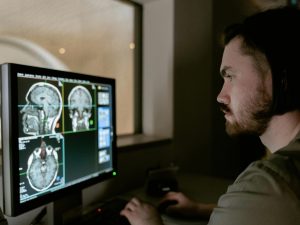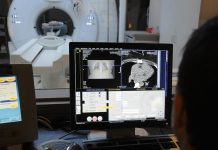Researchers at the University of Cambridge have developed a novel AI tool with the potential to predict the development of Alzheimer's disease in individuals with moderate memory and mental agility issues. This tool eliminates the necessity for invasive or expensive diagnostic testing by analyzing cognitive tests and MRI brain scans. Furthermore, it helps prevent inappropriate treatment for cognitive-related issues that are the result of other conditions, such as anxiety and depression.
The AI algorithm demonstrated over 80% prediction accuracy when tested on 1,500 patients from the United States, the United Kingdom, and Singapore. This is three times more effective than current clinical methods for identifying patients who are at risk of developing Alzheimer's, according to a study published in the journal eClinicalMedicine. If adopted, this tool could significantly transform the NHS if it can accurately identify patients using only routine clinical data and MRI imaging.
Early diagnosis is essential for the possibility of accessing novel medications that can mitigate the progression of Alzheimer's symptoms. Nevertheless, the absence of resources often hinders timely diagnosis. Alison Gilderdale serves as an illustration of this obstacle. A decade ago, she began to experience memory issues; however, it took six years for her symptoms to be fully identified and diagnosed as Alzheimer's. This new artificial intelligence tool is a substantial improvement in the early detection and treatment of Alzheimer's, offering hope for more effective management of the disease.























